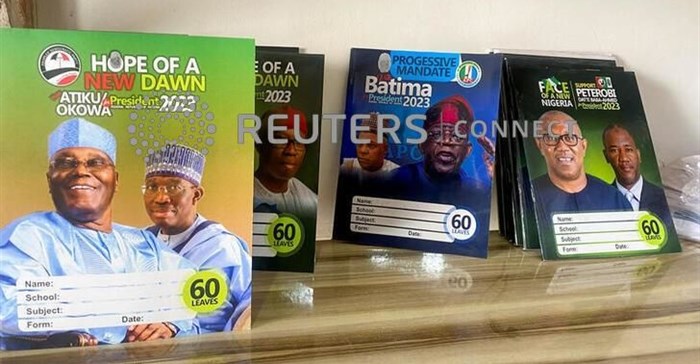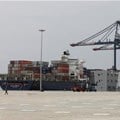Printers of Nigeria election regalia lose out as ad campaigns pivot online

"Printing-wise [there is] not much difference in our orders," said Shimatex Prints CEO Joel Mtsor, recalling busier periods around 2011, 2015 and 2019 polls.
"A few souvenirs, a few campaign materials, a few billboards. But the impact on the print industry is not as good as it was," he told Reuters.
Nigerians will vote for a new leader to replace President Muhammadu Buhari amid growing insecurity and economic hardship. The three frontrunners have promised to reduce living costs, boost growth and tackle rising levels of violence.
As Africa's most populous country, Nigeria is home to tens of millions of internet users, prompting candidates to compete for voters' eye-balls across popular platforms such as Facebook, Tiktok, Twitter and YouTube.
Social media has been a key campaigning tool ahead of a poll in which almost 40% of registered voters are 34 or younger, according to electoral commission data.
Not everything has moved online, however, as parties still commission political regalia for rallies and other in-person campaign events.
At a printing mall in Abuja's business hub, workers pasted party logos on baseball caps and sew candidates' portraits onto T-shirts. Bold political slogans flashed from white scarves hanging in the background.
"It is what we want... the most craziest of orders for a printer is a good job," said print shop owner Opeyemi Osho-Arilomo.
Source: Reuters

Reuters, the news and media division of Thomson Reuters, is the world's largest multimedia news provider, reaching billions of people worldwide every day.
Go to: https://www.reuters.com/
















